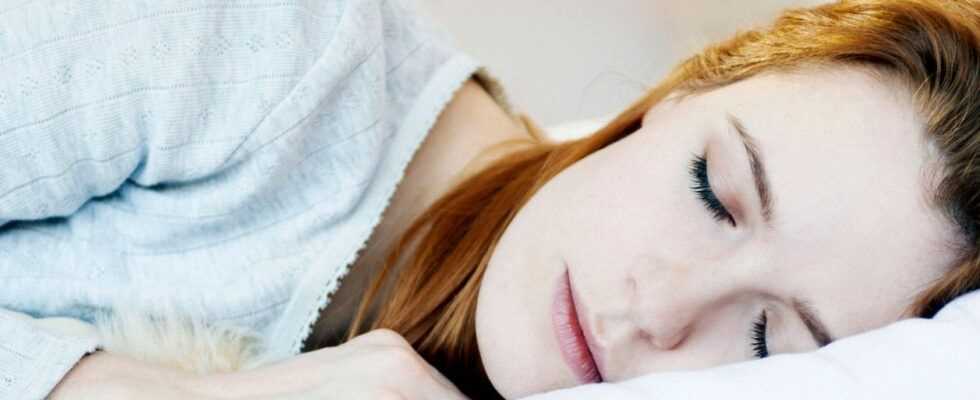Strange dreams on the increase, vivid nightmares, the appearance of Covid-19 and social distancing have a funny effect on our sleep.
Your nights are restless, you have strange nightmares, more than usual and you remember the moments lived? The Scientific American of October (some articles of which are online on its site) may have answers to this period which is tormenting your dreams.
"If we do venture into town, we wear masks, and we are anxious if we come across someone who isn't. We have a hard time making out the faces. It is as if we are living in a dream.", explains Tore Nielsen, professor in the department of psychiatry at the University of Montreal, who directs the Laboratory of dreams and nightmares.
According to the popular science magazine study, the virus has altered our dream world: "the amount of dreams we have, the number of our dreams we remember, and the nature of our dreams themselves." With confinement, short-time working or telecommuting, the sleep cycle has been altered somewhat, because we can sleep more and remember it more easily.
Dreams most often boil down to the fear of being infected or the lack of physical contact. Perceived as real, other reveries move towards a metaphorical and nightmarish universe which, indirectly, refers to the pandemic.
"Metaphorical images can be part of a constructive effort to make sense of disruptive events. A related process is the extinction of fear by creating new 'safety memories'.", explains Tore Nielsen's analysis.
Tweets seen on the account @CovidDreams illustrate how incompatible dream scenarios are with social distancing. These often trigger a rare moment of self-awareness and awakening. This isolation from others is an unknown experience and contrary to the natural evolution of the human species. "We were celebrating something by having a party. And I woke up because something was wrong because we're social distancing and we're not supposed to party", says a surfer.
Lucid dreaming
The expert on dreams, throughout his article, declares that healthcare workers who have seen "relentless suffering now suffers from recurring nightmares. And some patients who have spent days or weeks in intensive care have had horrible nightmares during this time, due, in part, to the medication and sleep deprivation induced by 24-hour hospital procedures and to the interminable noises and alarms of the monitors. "These survivors will need expert help to regain normal sleep.", he adds.
Tore Nielsen concludes his analysis of dreams in a health crisis in this way: according to him, we must learn to practice lucid dreaming, that is to say "become aware that you are dreaming now, using targeted memory reactivation or other methods that could help turn disturbing dreams of a pandemic into more pleasant, even useful, dreams. Observing and recounting your dreams of a pandemic seems to have a positive impact on mental health, as Natália Mota of the Federal University of Rio Grande do Norte in Natal, Brazil found in her studies. "
